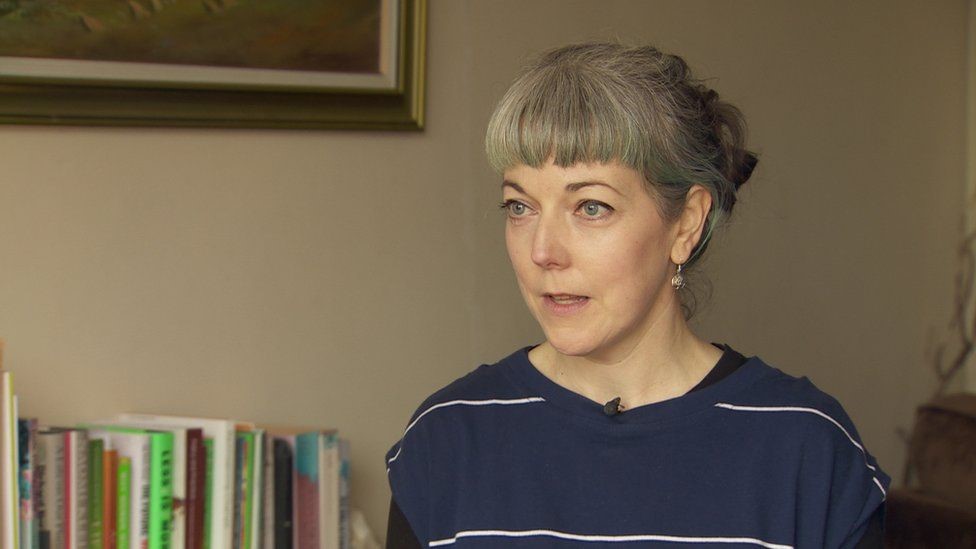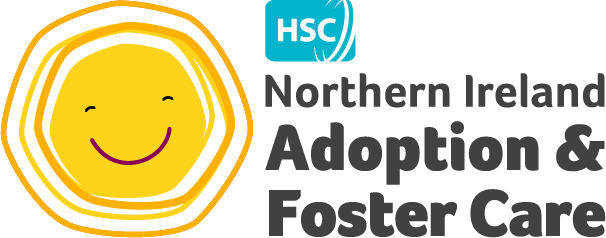
4th June 2025
Lynda has been a foster carer for two young refugees for a year. One year long placement has just come to an end – he was a 17 year old Somali young person. She is also currently fostering another 17 year old Somali young person who has now been with her for 9 months. She has shared her experience:
Did you think about fostering for a long time before applying?
No. I had always thought that you couldn’t be working while fostering. I wasn’t aware of the young refugee scheme where you could foster and work at the same time.
What made you want to foster?
I moved into the family home when my dad had to move into a care home. I felt it was too big just for me and it was a shame that the spare rooms were sitting there unused. I had thought about adoption but the whole process stalled when the pandemic began. My sister saw a video advertisement where a young woman was talking about fostering young refugees. She sent me this and asked me would I be interested. I rang up and enquired about it and went from there.
I am separated from my husband who lives in Peru. I began fostering as a single person, I’m now in a relationship but we live in our separate homes. I don’t have birth children. For the first year of fostering I was working but I have recently left to become an emergency foster carer for young refugees.
Why did you decide to foster young refugees?
I enjoyed my work and didn’t want to leave so when I found out that you can work alongside fostering young refugees then it became an option for me. They are also quite independent and can be left on their own at times during the day so I can continue with my hobbies and social interactions and be confident they can take care of themselves.
I have travelled a good bit and experienced living in different cultures where I was the newcomer; therefore I felt (despite being a very different situation) I could empathise with the young people coming to a new place and having to learn how to navigate it. I also studied international studies and worked in human rights organisations so I understand somewhat of what has led to many people having to flee their homes – so offering a safe place for them to land is a small part of what I can do to redress the injustices they have faced, often at the hands of Western governments.
How you found assessment process
I found the assessment process quicker than expected, not too laborious and interesting. There was a lot of information I had to provide about my past experiences but it was asked for incrementally and my social worker was respectful and not too invasive. It was actually kind of therapeutic looking back on your life and thinking how your different experiences have affected you and brought you to where you are now.
What sort of training have you undertaken?
I have undertaken various training – such as First Aid, understanding Human Trafficking, trauma, essential fostering skills etc. I found these very beneficial and increased my confidence in being able to support the young people I foster.
What support do you receive?
I have a supervising social worker who has been with me from the start and we have developed a good relationship so I feel I can trust her and call her up for support whenever I need it. Each foster teen has a social worker too to address the specific needs of each of them. There is also an Independent Guardian who acts as an independent support for the child.
Informally, my sister is a great support and she stays in my home a night every 2 months to give me a night off. Similarly I have a good friend who does the same, so that works out that I have a night off once a month. I have connected with another foster carer also and we would meet up occasionally to chat about shared experiences.
How you adapted to a young person in your home?
I was admittedly a little nervous before beginning to foster and the first few days were a bit awkward. But spending a bit of time together – going shopping or going for a walk, broke down that awkwardness and we began to build a relationship. I was surprised at how quickly it became normal. I showed them about the house and described how to use everything. I had the option of using an interpreter if I needed to convey anything complicated. In terms of setting house rules, we discussed why these were needed and came to an agreement with regards to curfew times etc.
Also, at the beginning before they started their English classes, I would sit down with them and study every so often. I used to be an English teacher and my brother still is so he was able to provide me with some materials (however there are many freely available online). I found this was also a way to get to know each other and was a focused way of spending time together.
Was there anything you had to learn?
Shortly after my first foster teen arrived we entered Ramadan, the Muslim holy month, so I had to learn what this meant practically (i.e. they can only eat when the sun goes down) and read up more about it too so I had a greater understanding. I also went to a session put on by the Belfast Islamic Centre entitled ‘An Introduction to Islam’ – I found this useful to understand concepts such as halal and other cultural and religious practices.
I also read and watched material that helped me understand the plight of refugees and what they might have gone through before and during their journey from their home to here.
How did the young people adapt?
Learning English was their main priority and they tackled it very diligently. They also had to learn the city and how to navigate it (i.e. where things are, how to use public transport etc.). They were able to find shops that sold halal meat and other items they were used to, but they also came to like some food from here (like pizza and Crunchy Nut Cornflakes).
It was difficult as well for them to go from being so self-reliant (travelling perhaps for 2 years on their own through many different countries) to having to suddenly tell numerous people where they were going and what they were doing all the time, and having to follow rules like curfew. However, I found by carefully and fully explaining why this was necessary they learned to accept this.
Rewards of fostering young refugees
I find it very rewarding fostering young refugees. It’s great to see how they begin to feel safe, open up and begin to see that they have a future. I love to see them moving from survival mode to enjoying their life – meeting friends, playing football, learning new skills. I have also learned a lot and grown as a person. It’s a new challenge and I find I’ve become a better person for it.
A highlight for me was when the three of us (the two teens and me) went to the stendhal music festival in the summer. We camped for two nights and spent two days going around watching musicians, comedians and performers. It was a nice family atmosphere and everyone was very friendly and welcoming. It was a good experience for us all.
What would you say to anyone who had been thinking about fostering young refugees?
I’d say if you’re thinking about it, it costs nothing to ring up or email and find out more information. You can have a chat with someone without committing and also hear from current foster carers about their experience. It’s definitely not as daunting as it may seem, and is infinitely more rewarding. It has enriched my life and gives me great satisfaction to know that I’ve helped these young people who have gone through so much at no fault of their own. Doing this helps me live in a world where children are forced to flee their homes and make such dangerous journeys on their own, all to find a safe place to lay their heads. Fostering gives me hope in an unjust world.
